Artichokes also make an excellent edible hedge. I planted a row of them from 4″ pots in the early spring to function as a living wall. They separate our patio from the rest of the garden, creating a more intimate gathering space. After just a couple months, the artichokes are now 3-4’ in height and have filled our harvest basket for weeks.
As we move into fall, the garden is producing lots of other goodies to harvest, so I have been allowing the artichoke flowers to open up. The pollen on the purple, spiky flowers has attracted honey bees and native bees in droves! I’m shocked at just how many buzzing bees are trying to cram in there at once.
Hard frosts may reduce some of the foliage from the plants in the winter, but in many climates they will leaf out bigger than before come spring time. In Portland, it’s only when we have unusually cold weather that they lose their leaves completely for the winter.
A well designed landscape needs the repetition of a few plant varieties to feel cohesive. It provides structure to your landscape and allows other plants to really stand out. We now have a couple dozen artichokes on our homestead that provide lots of food for us, pollen for the bees, and some gorgeous green in our urban slice of heaven.
We don’t need to drop a lot of cash on new artichoke plants in order to make them one of our repetitive elements in the garden. Artichokes are really easy to divide, especially as we transition into fall. I will be cutting out some of the newer offshoots at the base of the plants and replanting them throughout the garden as soon as our fall rains begin. That is a really easy way to propagate artichokes, which saves money on buying new plants.
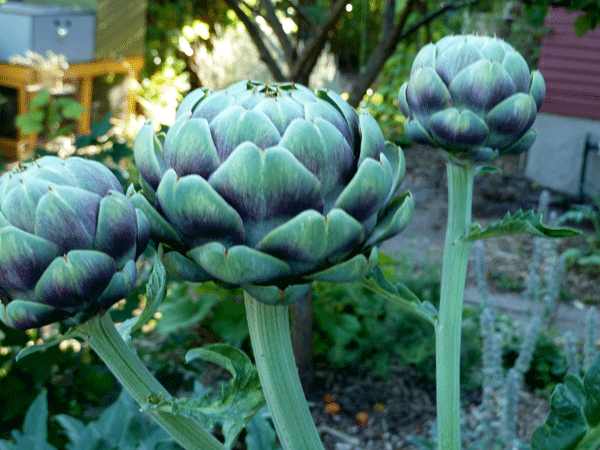 Do you have any favorite plants that are used repetitively in your garden? Are there edible plants that you tend to favor for hedges or creating outdoor spaces?
Do you have any favorite plants that are used repetitively in your garden? Are there edible plants that you tend to favor for hedges or creating outdoor spaces?
Hey northwesterners, I am heading up to Bellingham this coming weekend for some book events! You can catch me at the farmers market from 11am-1pm doing canning demonstrations and at 4pm at Village Books where I’ll be talking about my homesteading journey and signing books. If you’re in the area, come on by and say hello!
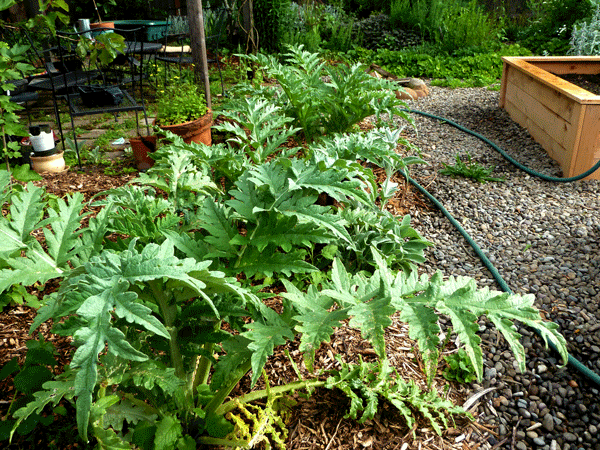
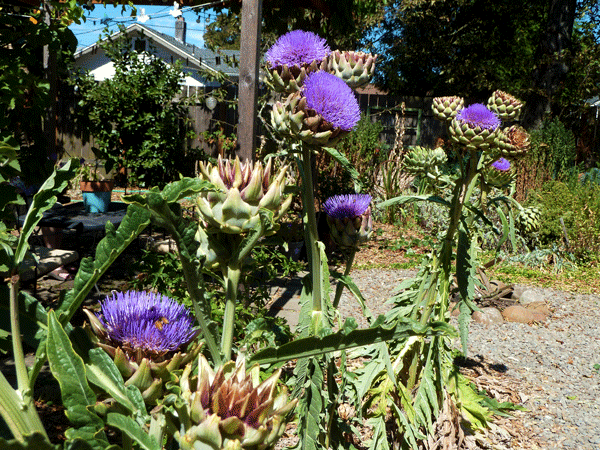
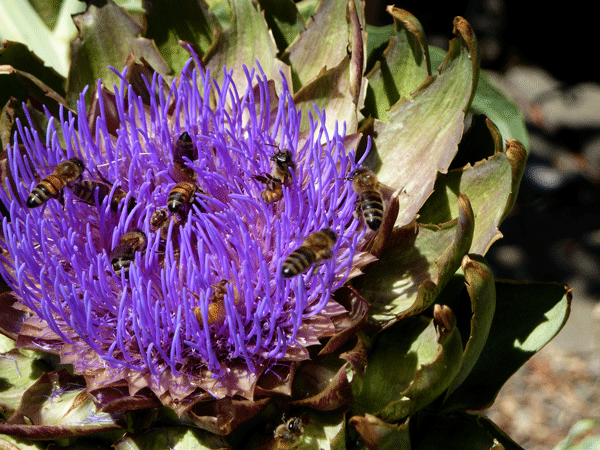
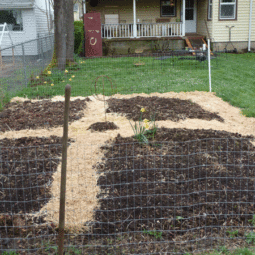
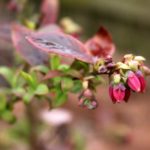
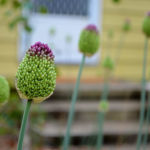
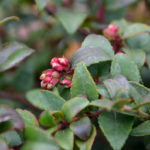

 This has become my
This has become my
 This is from South
This is from South


 All the ornamental grasses get cu
All the ornamental grasses get cu



This is the first year I’ve grown artichokes and I’ve let some flower as well. They really are amazingly beautiful. I’ll have to check for bees tomorrow and plan to do some dividing this fall.
When should you plant them? I planted some last year but we did not get any fruit from them.
I planted ours in early Spring, about March-April. I got fruit from some of them in late summer, but others didn’t fruit the first year. The second year all should be fruiting summer through fall.
I live in an area with free roaming deer, how well do the deer like the artichoke? They eat everything in sight.
Sherry, I have no direct experience with deer and artichokes, since I’m in the city. I have heard that deer don’t seem to be too interested in them though. Maybe start with a few plants to see how they do, then add more next season if they seem to work well for you.